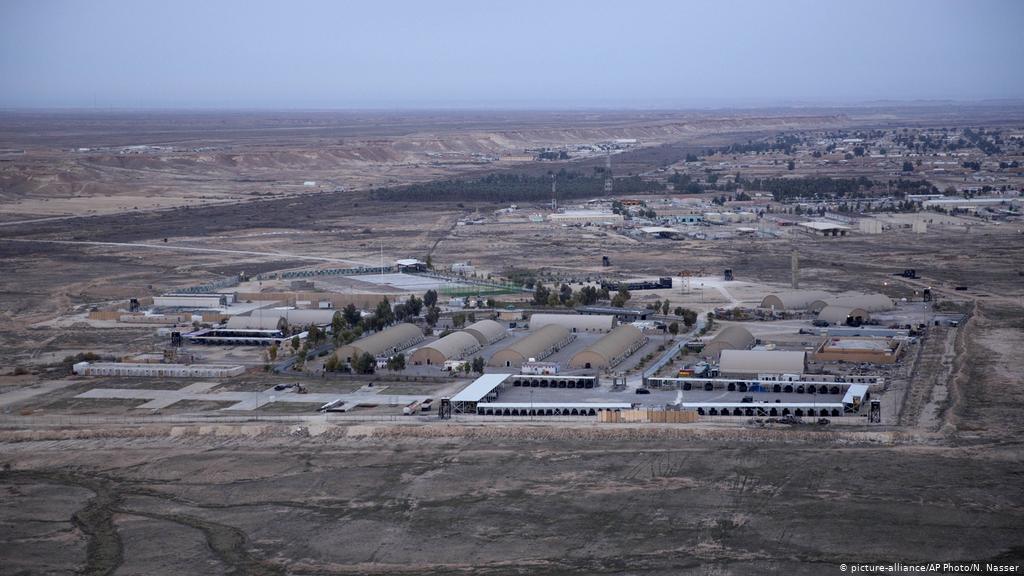AhlulBayt News Agency (ABNA): Only a few days after a US airstrike on the positions of the Iraqi anti-occupation forces on the Iraqi-Syrian borders, a new rocket attack hit Ain Al-Assad airbase in Al-Anbar, where the troops of the US-led Western military coalition are positioned.
Some media reported 10 and others 14 of 107-mm Katyusha rockets struck the base. Further reports said that the attack killed three American military personnel and a contractor who was revealed to be also an American.
The new wave of attacks by anti-American groups and opponents of US occupation of Iraq comes as the White House recently described an attack on the Syria’s Abu Kamal border region aimed at protecting the lives of its troops and deterring attacks on them and the military bases hosting them. Contrary to this, only a short time later, the US military base has once again been attacked by the anti-US Iraqi forces, triggering a need for focus to read the attack’s messages.
Ain Al-Assad attack’s explicit messages
In the analysis of the attack on Ain Al-Assad as the most important military base hosting the US occupying forces in Iraq, four points need to be taken into consideration.
First, the attack and reaction of anti-American groups to last week's aggression was quite predictable, and perhaps few political observers with least knowledge of the political atmosphere of Iraq expected passivity and silence. The attack also showed that the allegation made by US military and political officials that they had attacked anti-US positions to protect the lives of their troops was invalid. In other words, any attack on the anti-US positions under any circumstances not only would not save the lives of the Americans in Iraq but also could even subject them to greater threats and risks in the whole West Asian region.
Second, the attack makes it clear that a majority of the Iraqi people and political factions want the US expulsion from Iraq. In the past two years, Iraqi people and politicians have several times expressed their resolution to preserve their national sovereignty and make other countries respect it. Now this resolution remains as firm as before and an undeniable reality. Albeit, the Americans have come up with the notion that they have no place in Iraq but they resort to any trick, from promoting insecurity to reviving ISIS terrorist group, in order to justify their stay or at least delay their expulsion.
Third, the rocket attack on Ain Al-Assad as the largest US military installation in Iraq demonstrated that implementation of the parliamentary bill for foreign troop exit is definite and that change of the president or the whole administration in the US, or even in Iraq, will not make any difference to law. The Iraqi parliament’s resolution to expel the foreign forces from the country, approved on January 5, 2020, has not yet taken practical shape despite public and political demands. The change of the governments does not mean that the anti-occupation law can change or its implementation will be delayed. The reality is that forcing the Americans out of Iraqi is certain and the whole Iraqi government’s body should accept it.
Fourth, this rocket attack showed that any illegal attack by the US on the positions of the anti-American forces will not only be met with a reaction, but can also be reacted to on a larger scale and beyond what the Americans can imagine. With Washington's insistence on continuation of its illegal forces in Iraq, this trend will surely continue in the future, and there will be no peace or compromise to the US.
In sum, any US use of violence will be met with a more violent response. Even the new atmosphere, caused by the American strikes on the anti-terror forces on February 26, can bring about harder conditions for the Americans in Iraq, mainly because some Iraqi groups, such as Asaeb Ahl Al-Haqq, which had previously signed an agreement with the central government to avoid more attacks on the American forces under the condition of their gradual exit from the country, have now rescinded the accord and from now on see no limit in their battle against the American occupation forces.
/129
source : Al Waght News
Saturday
6 March 2021
7:08:27 AM
1120990

Only a few days after a US airstrike on the positions of the Iraqi anti-occupation forces on the Iraqi-Syrian borders, a new rocket attack hit Ain Al-Assad airbase in Al-Anbar, where the troops of the US-led Western military coalition are positioned.
